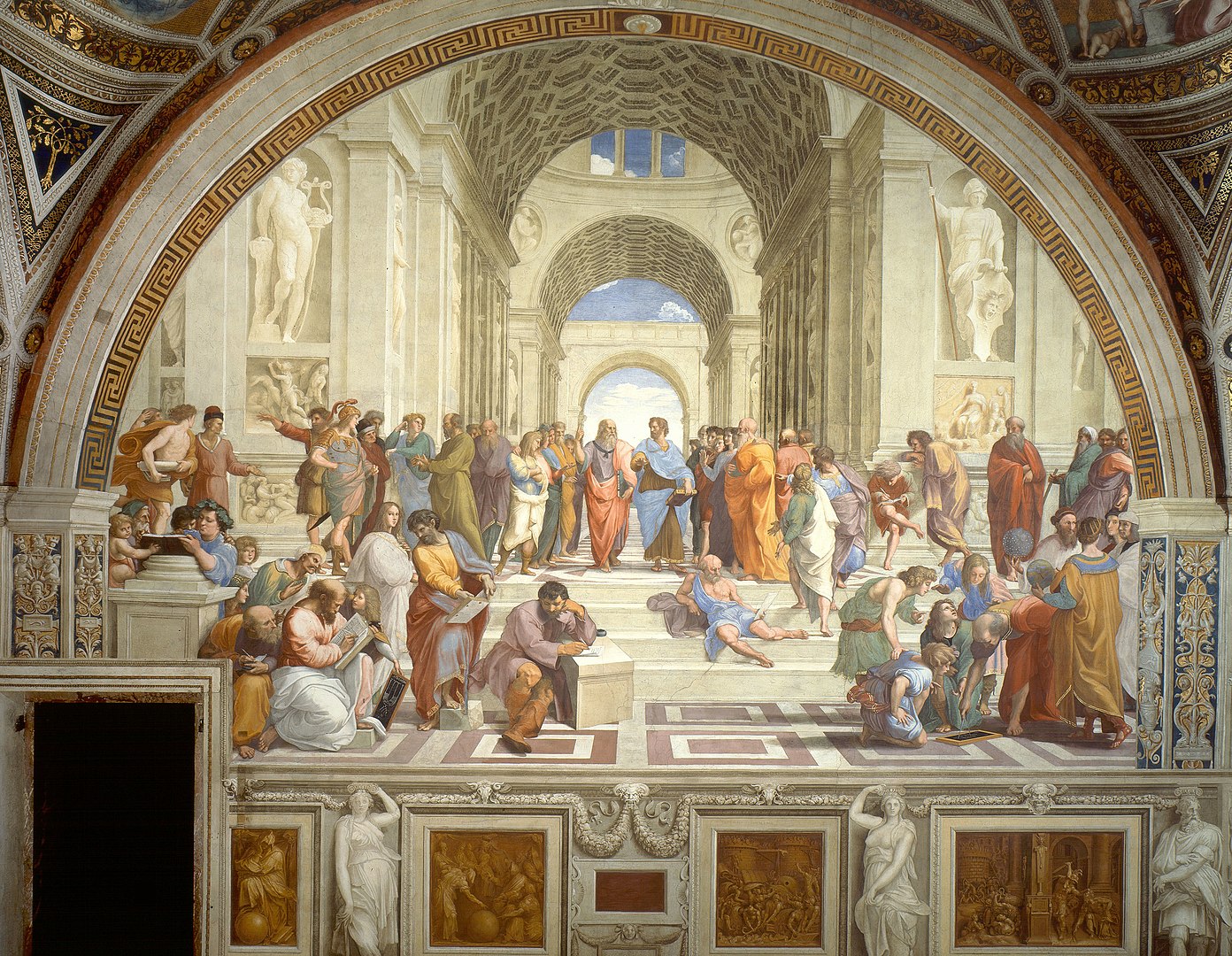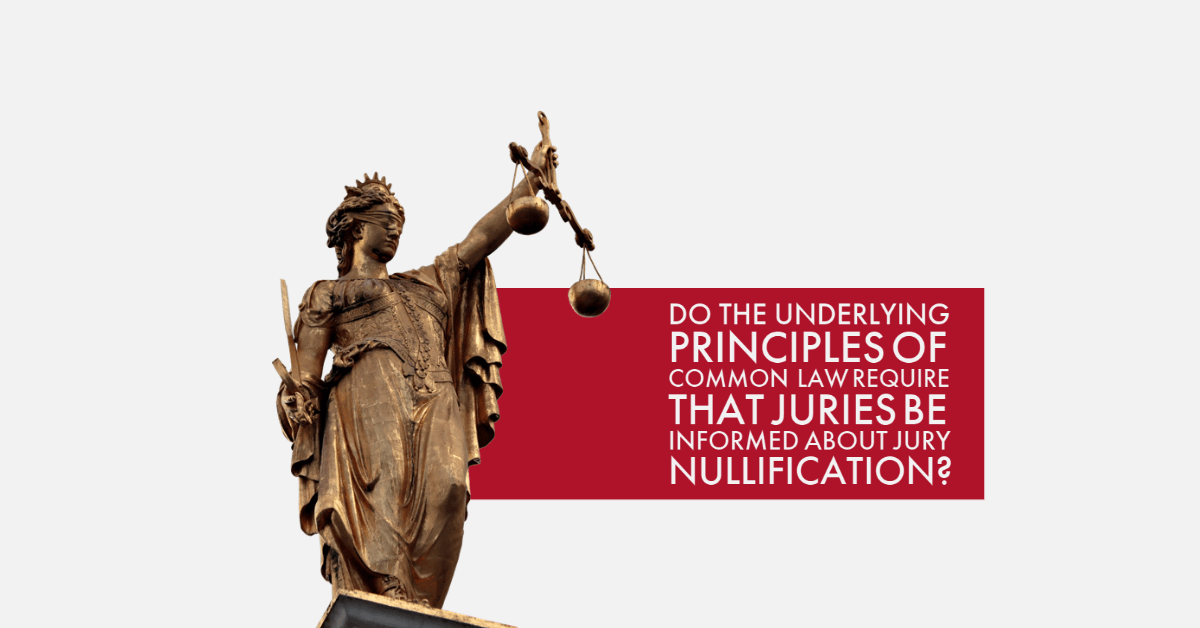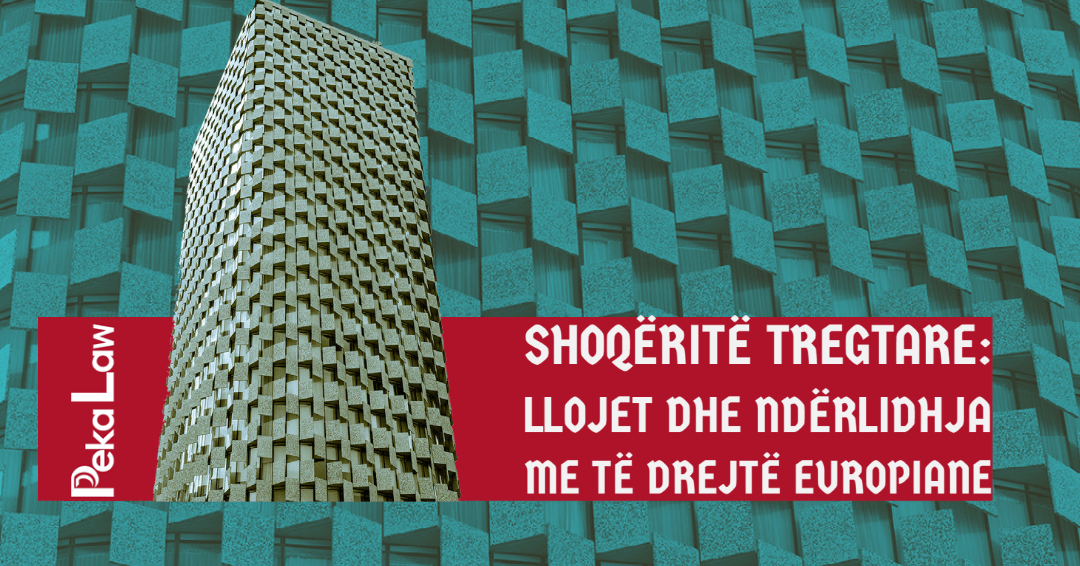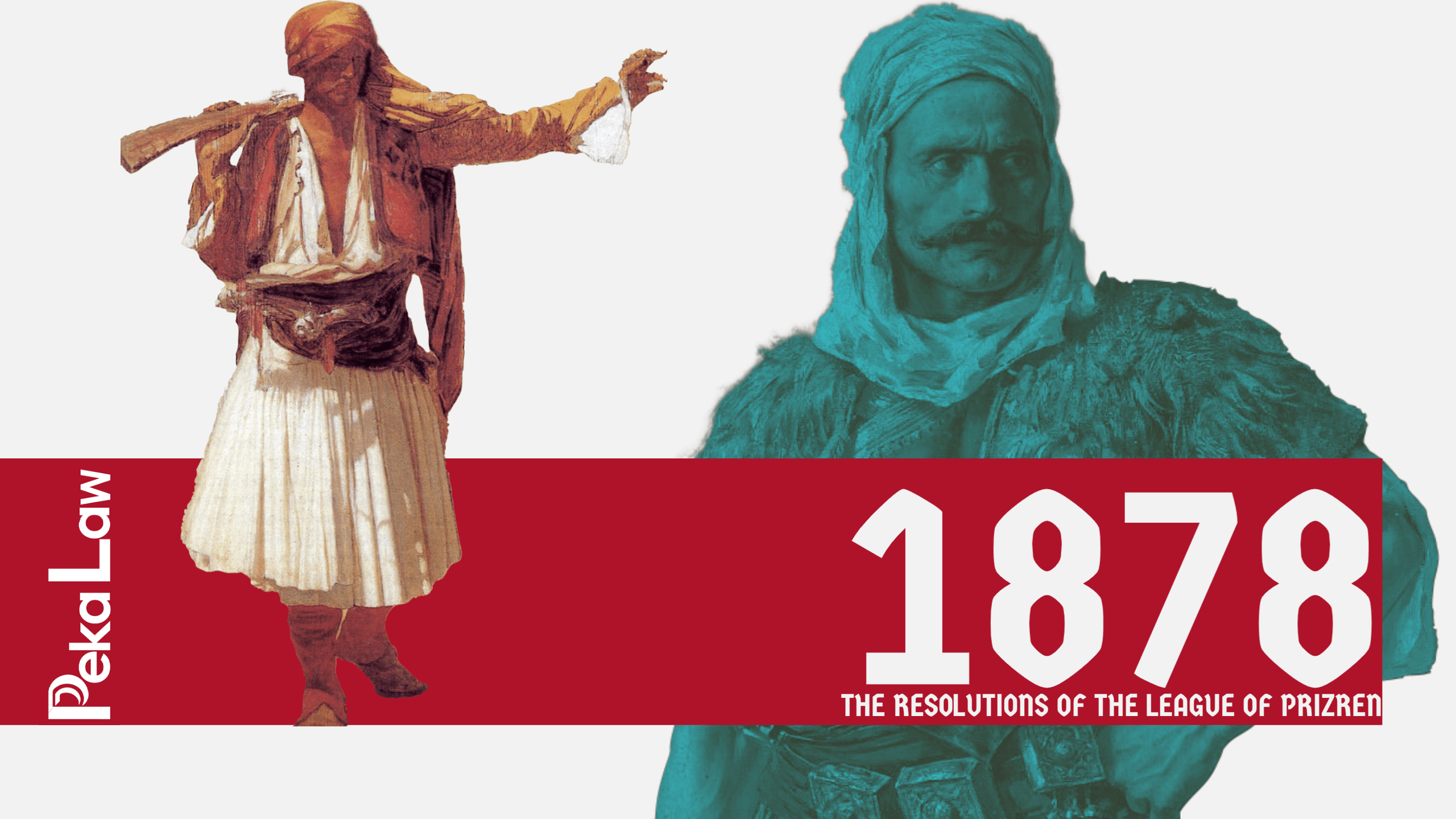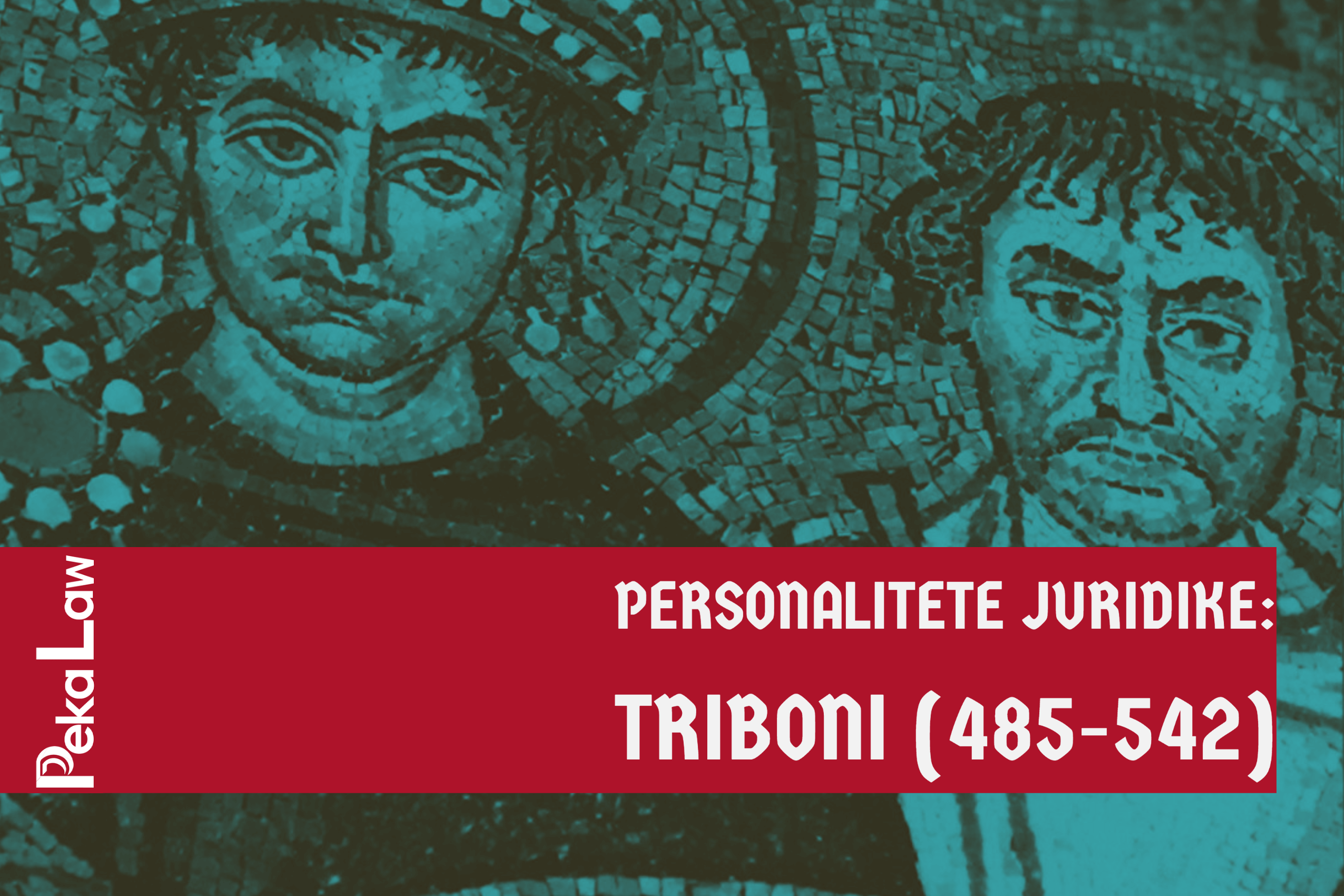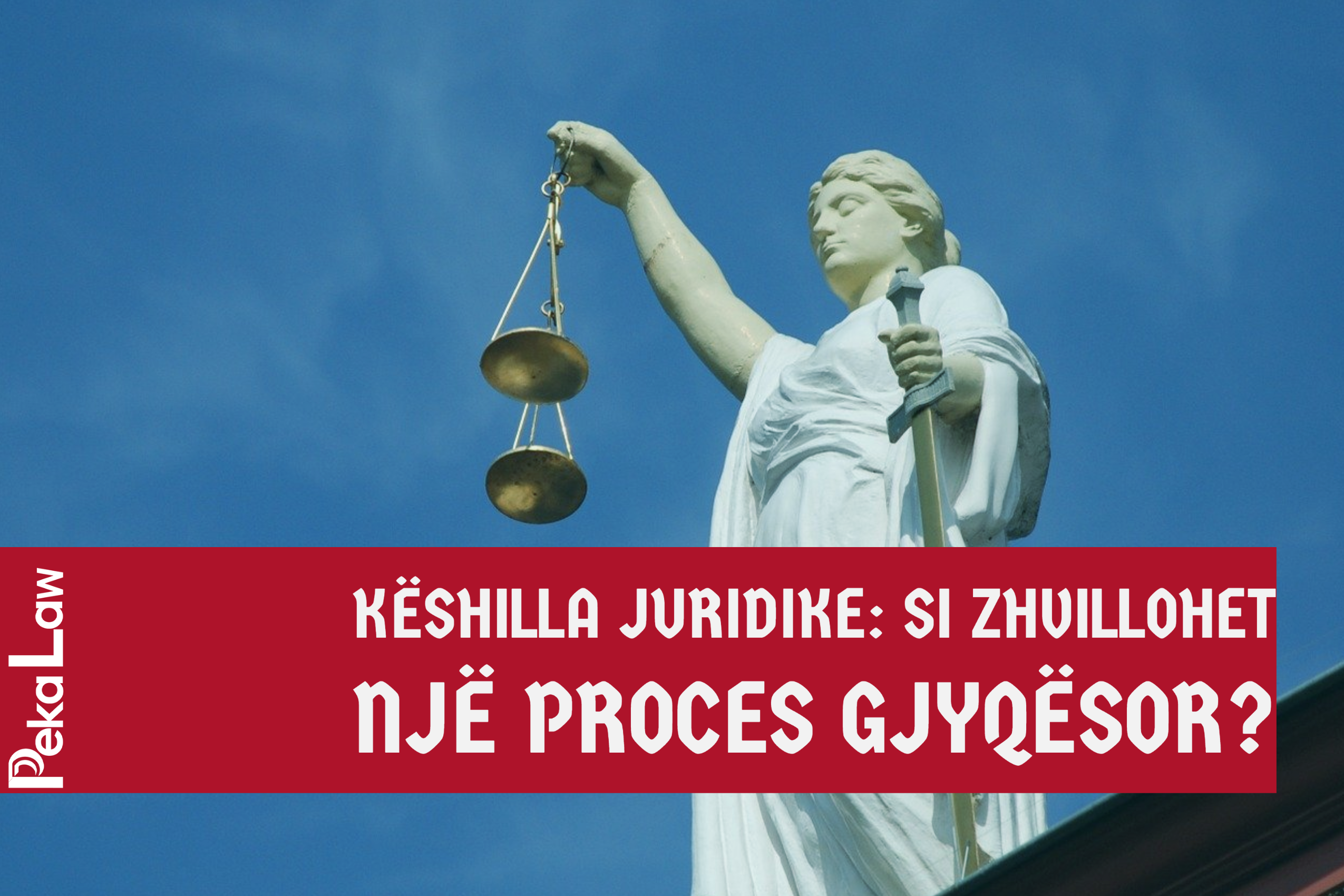“There is no greater tyranny than that which is perpetrated under the shield of the law and in the name of justice.”
Charles-Louis de Secondat, baron de la Brède et de Montesquieu, The Spirit of the Laws
Since its inception before The Magna Carta[1] the institution of juries in common law and its role in the criminal justice system has represented the will of the people in opposition to governmental tyranny[2] and unjust laws that govern the land. The Jury’s very existence stems as a result of the defendant’s right to a speedy and public trial[3]by his peers. Yet it also represents in a broader scale the direct participation of the Sovran in the justice system[4], with the sole aim of securing that the laws administered in court are designed in accordance with people’s “conscience” of what constitutes justice.[5] The laws must henceforth as a conditio sine qua non coincide with the justice exerted by the Sovran, anything withstanding it, and the juries’ can exert their power to nullify, first cemented in the Bushwell’s case[6] (1670),which become a means of affirming the conviction of the people[7]. Therefore by neglecting the nature and purpose of this ability(of the jury), the current status-quo remains shortsighted in disregarding the mediums through which juries can be informed about nullification and thus straying away from the values and underlying principles upon which this feature is predicated.
In analyzing the validity of any claim, the employment of a method is a matter of pure necessity. To that end, the incorporation of a holmsian methodology of consulting history and existing legal doctrines[8] seems appropriate if we’re to grasp the nature of nullification, even if ironically enough, it is at odds with Judge Holmes’ view of the matter at hand.[9]
In a broad reminiscence of the history of nullification, it can be contended that during the late medieval period, this feature was commonly used[10] in response to unpopular laws and excessive punishments[11]. This tendency is profoundly embodied in the case of Nicholas Throckmorton,[12] who through his charisma and due to the excessive nature of the punishment he was to suffer under the guidance of the law, was acquitted by the jury. The frequent usage of nullification became a staple of the common law, through its protection of local autonomy to the point that in the colonies British prosecutors gave up trying maritime related cases because conviction seemed hopeless[13]. This feature of the common law tradition would continue in the newly formed American state up to the end of the 18th century. During this period the jury’s role consisted in “determining the law as well as the fact in controversy.”[14]This power insured that the jury could serve the function of a check on the legislative as well as the executive branch of government, by signaling them as to the acceptability of their actions.[15]Hence nullification instructions, although not institutionalized, were allowed at court, as witnessed in the landmark case of Peter Zenger, and were not an offence deserving of punishment[16]. This meant that nullification was readily available to the juries and even though it contradicted in a superficial manner the rule of law, it was in conformity with the legal principles enshrined in the common law tradition and hence with the sense of justice, from which this doctrine originates.
The current status quo allows judges to withhold nullification instruction, as a part of the courts discretion. Yet this can have consequences in many a case, similar in fashion, when the punishment exceeds the limits set by people’s conscience and access or lack of knowledge in regards to nullification can result in very different decisions[17]. Nullification use shouldn’t be tantamount to its accidental discovery by the jury. After all what good is a power of any democratic tribunal if it eludes the assembly through the veil of their ignorance? And as a result it may be argued that the principle of an independent jury that decides upon consideration of the rule of law as well as its own sense of morality is hampered by the judiciary’s control of information essential to the intended function of the jury. Concretely, this is evident in numerous cases[18] that constrained the role of the jury to a mere fact finder, although, today is mainstream legal understanding[19] that jurors ought not to be constrained as mere fact finders as it was neither intended. This is considered by many to indeed be the case, because of the tribunals’ efficiency at performing this task. If the court truly needed a fact finding institution, it would not rely on the abilities of legally untrained civilians. Thus the role and intent of the jury introspects with the interpretation of the very l’esprit des lois.
Although today these claims concerning the fact fining nature of jury trial have been rebuffed, no actions have been taken to secure the jury’s impartiality and independence through weakening the influence and pressure that the court can exert upon this democratic body. The court’s power is exemplified in their usage of methods that can tamper with the jurors’ independence and judgment such as: jury instructions, voir dire[20] enforcement of the juror’s oath to follow the law, admitting evidence in opposition of a nullifying theory and restricting closing arguments regarding jury nullification. Consequently the judge’s control of all the means through which jurors may grasp a better understanding of their role and abilities in the trial will more often than not have a decisive impact on the outcome of the trial and as a result in jury decisions, which through the courts actions or inactions cannot truly be impartial and live up to their original designs. Thus a method of informing the juries is necessary in “order to guard against the exercise of arbitrary power—to make available the commonsense judgment of the community as a hedge …..In preference to the professional or perhaps over-conditioned or biased response of a judge”[21].
The need for nullification instructions can also be drawn from the fact that this ability is entrenched in both statutes and case law[22]. The best example of this fact comes in the form of the constitutions of US states such as Maryland, Oregon, Georgia and Indiana, whose provisions give the jurors the explicit right to judge and determine the law in all criminal cases[23].Coupled with the fact the nullification decisions are final and are endorsed and supported by the law-due to double jeopardy[24] an argument can be made that it possesses at least a de facto status. This status, despite not affirming nullification as a right of the jury, does entitle it to similar virtues to that of a law. In proving this claim one must take into consideration the nature of nullification and that of law. The nature of nullification is that of an emerging property[25] made possible only because of a plethora of de jure rights, which a jury possesses with the aim of protecting the liberty of the people from governmental actions and laws that don’t coincide with societal norms and beliefs. While law in its essence and end as Locke beautifully puts it: is not to abolish or restrain, but to preserve and enlarge freedom[26]. Different as they may be, nullification and the rule of law do coincide in their objective to preserve the sublime principle of liberty and autonomy[27]and both ought to be comprehensively explained ,analyzed and interpreted by the court so as to ensure that the justice of the people is founded on the principles of common law.
One common misconception among the individuals who seek to discourage nullification instructions is that it will inevitably lead to political anarchy or make its application far too commonplace[28]. But empirical data seems to contradict this induced logical conclusion, by pointing out that when jury is privy in using nullification, it does so mostly on cases in which the law or its current application is oppressive to the defendant and would be so to any other member of the community[29]. These findings also shed light into the gratification of revenge as an object of criminal law[30]. They seem to indicate that when the act perpetrated by the defendant is of such inconsequence as not to pose a threat to the social welfare and to discourage the gratification of revenge, because of the punishment not fitting the crime, then nullification instruction would undoubtedly be a net benefit to society.
Some studies also show that although jurors develop biases dependent on personal experience and convictions[31], yet others still seem to concur that a truly dangerous individual would not go unpunished, quite to the contrary he would be even more severely punished.[32] Thus they represent societal viewpoints in regards to crime, upon which the law constantly morphs and adapts.
It must also be noted that nullification of information to the jury may have a direct impact on the use and perception of plea bargaining,[33] whose overall involvement in felony convictions in the US and UK is of proportions that suggest excess in its application[34]. This tool has lead more often than not in mass incarcerations of citizens, who are being coerced by the state and yielding to its pressure, instead of taking a chance in the judicial system[35]. As a consequence, often draconian and unpopular laws remain static and as result, impact the justice system on a micro level, in each case where they’re cited and macro level, in their archaic interpretation of what a society deems harmful.[36]
A jury with the ability to nullify might otherwise present a way of securing that the state’s bureaucratic corpus is kept in check and does not abuse its power, but actually channels it in serving the needs of the people. Repeated instances of this feature’s use could serve not only as a bulwark of democracy but also of the law. Instances of this trait have been observed under the Fugitive Slave Act of 1850, [37]during the Prohibition Era[38] and can have similar implications in the future, especially with drug related crimes.
The purpose of the rule of law and jury adjudication must strive for, as Rawls puts it: “reflective equilibrium between the command of general rules and our “considered judgments” about correct outcomes in particular cases”.[39] This comment entails that the general rules prescribed in the law always leave gaps in the reasoning, which makes an idiosyncratic approach to assessing their value a necessity in giving a just and appropriate verdict. Nullification for its part serves as a counterbalance to the general rules and implies that these unique and peculiar circumstances ought to be a factor in deciding a case in jury trial, in the same fashion as they would be in a trial by a judge.
The underlying principles in common law in regards to informing the jurors about nullification seem to entice that such a measure be taken in securing that values such as: fairness in a jury trial, liberty from governmental tyranny and direct verdict of the people be based on conscience. Indeed those features must be protected and acted upon in ensuring the survival of the jury trial as intended in the common law system. To that end nullification instructions are a means, which serve the jury in proportion to the duty and authority that this body possesses. In an epoch that coincides with overzealous prosecutors and judges, who seek to diminish nullification to a mere bug and trumpet, the letter and rule of law Montesquieu’s assessment is coherent- “There is no greater tyranny than that which is perpetrated under the shield of the law and in the name of justice”[40]–and a jury capable of understanding the full extent of its power remains the bulwark of democracy and the conscience of the people’s justice.
[1] Lysander Spooner, An Essay on the Trial by Jury (Boston, MA: John P Jewett & Company 1852)
[2] Arie M Rubenstein, ‘Verdicts of Conscience: Nullification and the Modern Jury Trial’ [May 2006] 106(4) Columbia Law Review 959-993 (35 pages)
[3] Constitution of the United States of America, Amendment VI ,The Bill of Rights
[4] Ballew v. Georgia, 435 U.S. 223, 229 (1977)).
[5] Simon Stern, ‘Between Local Knowledge and National Politics: Debating Rationales for Jury Nullification after Bushell’s Case’ [2002] 111(7) The Yale Law Journal 1815-1859 (45 pages)
[6] Bushell’s Case, Vaugh. 135, 124 Eng. Rep. 1006 (C.P. 1670)
[7] Thomas A Green, Verdict According to Conscience: Perspectives on the English Criminal Trial Jury 1200-1800 (University of Chicago Press 1985)
[8] Oliver Wendell Holmes Jr, The Common Law (The John Harvard Library edn, Harvard University Press 2009)
[9] “The jury has the power to bring a verdict in the teeth of both the law and the facts.” This quote of Holmes does not infer that the jury can acquit in grounds of conscience and morality.
[10]Thomas A Green, Verdict According to Conscience: Perspectives on the English Criminal Trial Jury 1200-1800 (University of Chicago Press 1985)
[11] ibid; Philip B Scott, ‘Jury Nullification: An Historical Perspective on a Modern Debate’ [1989] 91(2) West Virginia Law Review
[12] United States v. Wilson, 629 F.2d 439, 443 (6th Cir. 1980)
[13] Jeffrey Abramson, We, the Jury: The Jury System and the Ideal of Democracy (1st Harvard University Press pbk ed edition edn, Harvard University Press 2000)
[14] A quote of John Jay, first stated in 1794.
[15] Ronald Dworking, Law’s Empire (1st edn, Belknap Press of Harvard University Press 1986)
[16] Thomas Bayly Howell and others, Cobbett’s Complete Collection of State Trials and Proceedings for High Treason and Other Crimes and Misdemeanors: From the Earliest Period to the the Second, AD 1163, to [George Iv, A (Andesite Press 2015); William R. Glendon, The Trial of John Peter Zenger, 68 N.Y. ST. B.J., Dec. 1996, at 48)).
[17] Sparf v. United States, 156 U.S. 51 (more)15 S. Ct. 273; 39 L. Ed. 343; 1895 U.S. LEXIS 2120
[18]United States v. Battiste, 834 F. Supp. 995 (N.D. Ill. 1993), ibid, United States v. Boardman, 419 F. 2d 110 – 1969, United States v. Moylan, 417 F. 2d 1002 – 1969, United States v. Dougherty – 154 U.S. App. D.C. 76, 473 F.2d 1113 (1972)
[19]Darryl K. Brown, ‘Jury Nullification within the Rule of Law’ [1997] Minnesota Law Review; Joan Biskupic, ‘In Jury Rooms, Form of Civil Protest Grows’ (The Washington Post, 8th February) <https://www.washingtonpost.com/wp-srv/national/jury080299.htm> accessed 15 July 2020
[20] Aaron McKnight, Jury Nullification as a Tool to Balance the Demands of Law and Justice, 2013 BYU L. Rev. 1103 (2014)
[21] Taylor v. Louisiana, 419 U.S. 522 (1975)
[22] Horning v. District of Columbia [1920] 41 S.Ct. 53 at 54; Morissette v. United States[1952] 342 U.S. 246, 275,
United States v. Moylan, 417 F. 2d 1002 – 1969, United States v. Dougherty – 154 U.S. App. D.C. 76, 473 F.2d 1113 (1972)
[23] Commonwealth Law Bulletin Vol. 34, No. 2, 297–312, June 2008
[24] Constitution of the United States of America, Amendment VII of the Bill of Rights
[25] Travis Hreno, The Jury Nullification Instruction and the De Jure / De Facto Debate: A Hohfeldian Analysis, Public Affairs Quarterly (University of Illinois Press on behalf of North American Philosophical Publications 2008)
[26] Tom G Palmer, Realizing Freedom: Libertarian Theory, History, and Practice (Cato Institute; Expanded edition 2014) Second Treatise on Government, sec. 57.
[27] Commonwealth Law Bulletin Vol. 34, No. 2, 297–312, June 2008
[28]Alan Scheflin & Jon Van Dyke, Jury Nullification: The Contours of a Controversy, 43 Law and Contemporary Problems 51-115 (Fall 1980)
[29] Darryl K. Brown, ‘Jury Nullification within the Rule of Law’ [1997] Minnesota Law Review; Broeder, Dale W. (1954) “The Functions of the Jury Facts or Fictions?,” University of Chicago Law Review: Vol. 21 : Iss. 3 , Article 4.
[30] Butler,Sermons,VIII.Bentham, Theory of Legislation (Principles of Penal Code,Part 2,ch.16),Hildreth’s tr.,p.309
[31] Richard Wiener and others, ‘The Social Psychology of Jury Nullification: Predicting When Jurors Disobey the Law’ [1991] 21(17) Journal of Applied Social Psychology
[32] Horowitz, I. A. Jury nullification: The impact of judicial instructions, arguments, and challenges on jury decision making. Law and Human Behavior, [1988] 12(4), 439–453.
[33] Virginia Law Review, Vol. 82, No. 2 (Mar., 1996), pp. 253-324
[34] John Balwin and Michael Mcconville, ‘Plea Bargaining and Plea Negotiation in England’ [1979] 13(2) Law & Society Review Vol. 13, No. 2, Special Issue on Plea Bargaining (Winter, 1979), pp. 287-307;
Fisher, George Plea Bargaining’s Triumph: A History of Plea Bargaining in America, [2003]. Stanford University Press
[35] Clark Neily, ‘Prisons are packed because prosecutors are coercing plea deals And, yes, it’s totally legal’ (NBC News, 9th of August) <https://www.nbcnews.com/think/opinion/prisons-are-packed-because-prosecutors-are-coercing-plea-deals-yes-ncna1034201> accessed 15 July 2020
[36] Travis Hreno, The Jury Nullification Instruction and the De Jure / De Facto Debate: A Hohfeldian Analysis, Public Affairs Quarterly (University of Illinois Press on behalf of North American Philosophical Publications 2008)
[37] Jeffrey Abramson, We, the Jury: The Jury System and the Ideal of Democracy (1st Harvard University Press pbk ed edition edn, Harvard University Press 2000)
[38] Harry Kalven Jr and Zeisel Hans, The American Jury (Limited Edition edn, Legal Classics Library 1993)
[39] John Rawls, A Theory of Justice (2nd edn, Belknap Press: An Imprint of Harvard University Press 1999)
[40]Baron de Montesquieu, The Spirit of the Laws (Cambridge University Press 1989)
BIBLIOGRAPHY
PRIMARY LAW SOURCES
- Constitution of the United States of America, Amendment VI-VII, “The Bill of Rights”.
- Ballew v. Georgia, 435 U.S. 223, 229 (1977)).
- Bushell’s Case, Vaugh 135, 124 Eng. Rep. 1006 (C.P. 1670)
- United States v. Wilson, 629 F.2d 439, 443 (6th Cir. 1980)
- The Trial of John Peter Zenger, 68 N.Y. ST. B.J., Dec. 1996, at 48.
- Sparf v. United States, 156 U.S. 51 (more)15 S. Ct. 273; 39 L. Ed. 343; 1895 U.S. LEXIS 2120
- United States v. Battiste, 834 F. Supp. 995 (N.D. Ill. 1993)
- United States v. Boardman, 419 F. 2d 110 – 1969,
- United States v. Moylan, 417 F. 2d 1002 – 1969,
- United States v. Dougherty – 154 U.S. App. D.C. 76, 473 F.2d 1113 (1972)
- Taylor v. Louisiana, 419 U.S. 522 (1975)
- Horning v. District of Columbia [1920] 41 S.Ct. 53 at 54;
- Morissette v. United States[1952] 342 U.S. 246, 275,
- United States v. Moylan, 417 F. 2d 1002 – 1969,
- United States v. Dougherty – 154 U.S. App. D.C. 76, 473 F.2d 1113 (1972)
BOOKS
- Baron de Montesquieu, The Spirit of the Laws (Cambridge University Press 1989)
- John Rawls, A Theory of Justice (2nd edn, Belknap Press: An Imprint of Harvard University Press 1999)
- Harry Kalven Jr and Zeisel Hans, The American Jury (Limited Edition edn, Legal Classics Library 1993)
- Jeffrey Abramson, We, the Jury: The Jury System and the Ideal of Democracy (1st Harvard University Press pbk ed edition edn, Harvard University Press 2000)
- Fisher, George Plea Bargaining’s Triumph: A History of Plea Bargaining in America, [2003]. Stanford University Press
- Travis Hreno, The Jury Nullification Instruction and the De Jure / De Facto Debate: A Hohfeldian Analysis, Public Affairs Quarterly (University of Illinois Press on behalf of North American Philosophical Publications 2008)
- Butler,Sermons,VIII.Bentham, Theory of Legislation (Principles of Penal Code,Part 2,ch.16),Hildreth’s tr.,p.309
- Tom G Palmer, Realizing Freedom: Libertarian Theory, History, and Practice (Cato Institute; Expanded edition 2014) Second Treatise on Government, sec. 57
- Thomas Bayly Howell and others, Cobbett’s Complete Collection of State Trials and Proceedings for High Treason and Other Crimes and Misdemeanors: From the Earliest Period to the the Second, AD 1163, to [George Iv, A (Andesite Press 2015); William R. Glendon.
- Oliver Wendell Holmes Jr, The Common Law (The John Harvard Library edn, Harvard University Press 2009)
- Lysander Spooner, An Essay on the Trial by Jury (Boston, MA: John P Jewett & Company 1852)
- Thomas A Green, Verdict According to Conscience: Perspectives on the English Criminal Trial Jury 1200-1800 (University of Chicago Press 1985)
- Jeffrey Abramson, We, the Jury: The Jury System and the Ideal of Democracy (1st Harvard University Press pbk ed edition edn, Harvard University Press 2000)
- Ronald Dworking, Law’s Empire (1st edn, Belknap Press of Harvard University Press 1986)
JOURNALS
- Simon Stern, ‘Between Local Knowledge and National Politics: Debating Rationales for Jury Nullification after Bushell’s Case’ [2002] 111(7) The Yale Law Journal 1815-1859 (45 pages).
- Philip B Scott, ‘Jury Nullification: An Historical Perspective on a Modern Debate’ [1989] 91(2) West Virginia Law Review.
- Aaron McKnight, Jury Nullification as a Tool to Balance the Demands of Law and Justice, 2013 BYU L. Rev. 1103 (2014)
- Commonwealth Law Bulletin Vol. 34, No. 2, 297–312, June 2008
- Darryl K. Brown, ‘Jury Nullification within the Rule of Law’ [1997] Minnesota Law Review.
- Broeder, Dale W. (1954) “The Functions of the Jury Facts or Fictions?” University of Chicago Law Review: Vol. 21 : Iss. 3 , Article 4.
- Richard Wiener and others, ‘The Social Psychology of Jury Nullification: Predicting When Jurors Disobey the Law’ [1991] 21(17) Journal of Applied Social Psychology.
- Horowitz, I. A. Jury nullification: The impact of judicial instructions, arguments, and challenges on jury decision making. Law and Human Behavior, [1988] 12(4), 439–453.
- Virginia Law Review, Vol. 82, No. 2 (Mar., 1996), pp. 253-324
- John Balwin and Michael Mcconville, ‘Plea Bargaining and Plea Negotiation in England’ [1979] 13(2) Law & Society Review Vol. 13, No. 2, Special Issue on Plea Bargaining (Winter, 1979), pp. 287-307
Journalist Articles
- Darryl K. Brown, ‘Jury Nullification within the Rule of Law’ [1997] Minnesota Law Review; Joan Biskupic, ‘In Jury Rooms, Form of Civil Protest Grows’ (The Washington Post, 8th February) <https://www.washingtonpost.com/wp-srv/national/jury080299.htm> accessed 15 July 2020
- Clark Neily, ‘Prisons are packed because prosecutors are coercing plea deals And, yes, it’s totally legal’ (NBC News, 9th of August) <https://www.nbcnews.com/think/opinion/prisons-are-packed-because-prosecutors-are-coercing-plea-deals-yes-ncna1034201> accessed 15 July 2020
